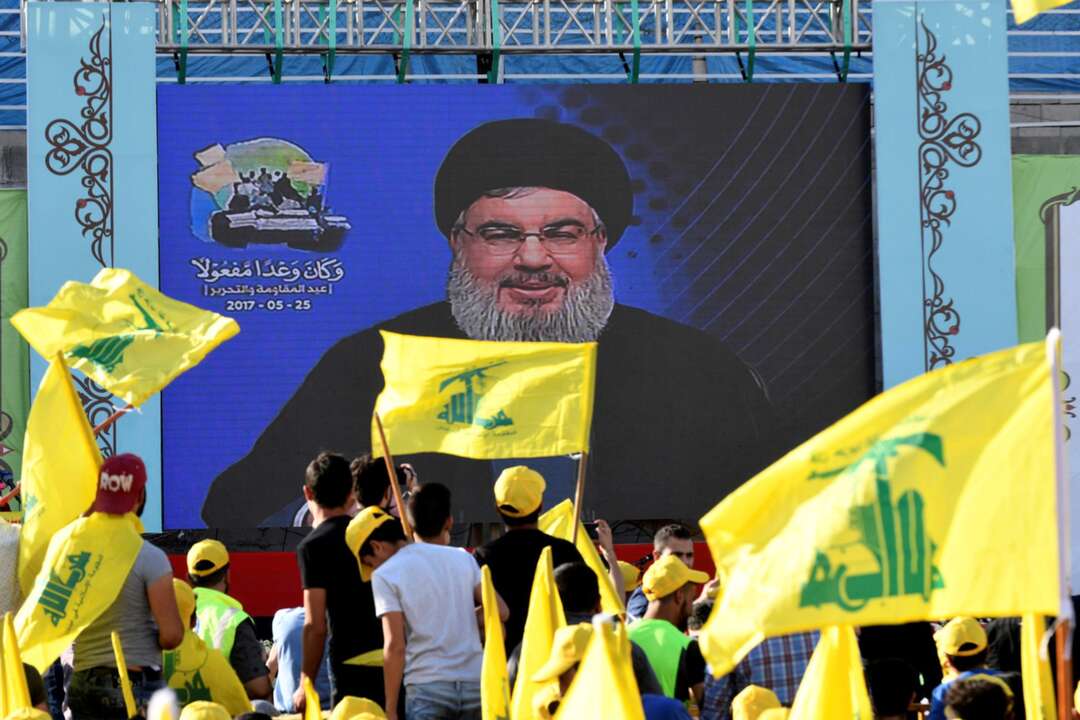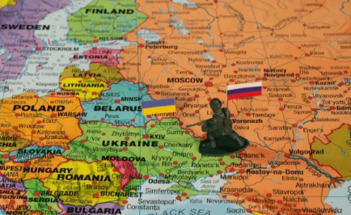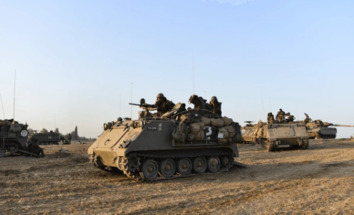-
Hassan Nasrallah denounces Kuwait's proposals but backs Lebanon-Gulf dialogue

The National News reported, the head of Lebanon’s Iran-backed Hezbollah militant group said on Tuesday he was against a list of proposals as part of Kuwait’s mediation aimed at repairing ties between Lebanon and Gulf Arab states.
But Hassan Nasrallah said he was in support of dialogue efforts.
He described the Kuwaiti list of proposals and conditions brought forward for Lebanon as “dictates”. The proposals have resulted in strained ties recently, largely over what they say is Hezbollah’s growing influence.
Mr Nasrallah said in an interview on Iranian TV channel Al Alam: “Lebanon is a sovereign country and should not be sent dictates."
The terms delivered to Beirut on January 22 included setting a time frame for implementing UN Security Council resolutions. They included Resolution 1559, adopted in 2004, which calls for the disarmament of non-state militias in Lebanon.

The initiative’s conditions also included halting drug smuggling from Lebanon, non-interference in the internal affairs of Arab countries and curbing the involvement of the Iran-backed Hezbollah movement in other Arab countries, most importantly Yemen.
Lebanon will not 'hand over' Hezbollah weapons at Gulf meeting, foreign minister says
Lebanon’s ties to the Arab Gulf and particularly Saudi Arabia, formerly a major donor to Beirut, hit rock bottom last year over what the Saudi foreign minister said was Hezbollah’s growing influence in the country. Relations had deteriorated for years, causing knock-on effects within Lebanon.
Relations between Lebanon and Gulf states are at their lowest ebb in decades after comments by a minister last year caused a crisis.
USA imposes sanctions on 3 Lebanese businessmen with ties to Hezbollah
George Kordahi spoke critically of the Saudi-led coalition’s support for the Yemeni government in the war against Iran-backed Houthi rebels during a wave of attacks on the kingdom by the group.
The comments by Mr Kordahi, who was then information minister, prompted Saudi Arabia to recall its ambassador from Beirut and ban all Lebanese imports, affecting hundreds of businesses and cutting off the flow of hundreds of millions in foreign currency to Lebanon. Several other Gulf countries followed.
Fears grow over Iran influence in Lebanon after Hezbollah and Amal Cabinet decision
Hezbollah has a militia more powerful than Lebanon’s army and has backed pro-Iran allies in the region, including in Syria. The group and its allies also exercise major sway over Lebanese state policy.
Source: nationalnews
You May Also Like
Popular Posts
Caricature
BENEFIT AGM approves 10%...
- March 27, 2025
BENEFIT, the Kingdom’s innovator and leading company in Fintech and electronic financial transactions service, held its Annual General Meeting (AGM) at the company’s headquarters in the Seef District.
During the meeting, shareholders approved all items listed on the agenda, including the ratification of the minutes of the previous AGM held on 26 March 2024. The session reviewed and approved the Board’s Annual Report on the company’s activities and financial performance for the fiscal year ended 31 December 2024, and the shareholders expressed their satisfaction with the company’s operational and financial results during the reporting period.
The meeting also reviewed the Independent External Auditor’s Report on the company’s consolidated financial statements for the year ended 31 December 2024. Subsequently, the shareholders approved the audited financial statements for the fiscal year. Based on the Board’s recommendation, the shareholders approved the distribution of a cash dividend equivalent to 10% of the paid-up share capital.
Furthermore, the shareholders endorsed the allocation of a total amount of BD 172,500 as remuneration to the members of the Board for the year ended 31 December 2024, subject to prior clearance by related authorities.
The extension of the current composition of the Board was approved, which includes ten members and one CBB observer, for a further six-month term, expiring in September 2025, pending no objection from the CBB.
The meeting reviewed and approved the Corporate Governance Report for 2024, which affirmed the company’s full compliance with the corporate governance directives issued by the CBB and other applicable regulatory frameworks. The AGM absolved the Board Members of liability for any of their actions during the year ending on 31st December 2024, in accordance with the Commercial Companies Law.
In alignment with regulatory requirements, the session approved the reappointment of Ernst & Young (EY) as the company’s External Auditors for the fiscal year 2025, covering both the parent company and its subsidiaries—Sinnad and Bahrain FinTech Bay. The Board was authorised to determine the external auditors’ professional fees, subject to approval from the CBB, and the meeting concluded with a discussion of any additional issues as per Article (207) of the Commercial Companies Law.
Speaking on the company’s performance, Mr. Mohamed Al Bastaki, Chairman BENEFIT , stated: “In terms of the financial results for 2024, I am pleased to say that the year gone by has also been proved to be a success in delivering tangible results. Growth rate for 2024 was 19 per cent. Revenue for the year was BD 17 M (US$ 45.3 Million) and net profit was 2 Million ($ 5.3 Million).
Mr. Al Bastaki also announced that the Board had formally adopted a new three-year strategic roadmap to commence in 2025. The strategy encompasses a phased international expansion, optimisation of internal operations, enhanced revenue diversification, long-term sustainability initiatives, and the advancement of innovation and digital transformation initiatives across all service lines.
“I extend my sincere appreciation to the CBB for its continued support of BENEFIT and its pivotal role in fostering a stable and progressive regulatory environment for the Kingdom’s banking and financial sector—an environment that has significantly reinforced Bahrain’s standing as a leading financial hub in the region,” said Mr. Al Bastaki. “I would also like to thank our partner banks and valued customers for their trust, and our shareholders for their ongoing encouragement. The achievements of 2024 set a strong precedent, and I am confident they will serve as a foundation for yet another successful and impactful year ahead.”
Chief Executive of BENEFIT; Mr. Abdulwahed AlJanahi commented, “The year 2024 represented another pivotal chapter in BENEFIT ’s evolution. We achieved substantial progress in advancing our digital strategy across multiple sectors, while reinforcing our long-term commitment to the development of Bahrain’s financial services and payments landscape. Throughout the year, we remained firmly aligned with our objective of delivering measurable value to our shareholders, strategic partners, and customers. At the same time, we continued to play an active role in enabling Bahrain’s digital economy by introducing innovative solutions and service enhancements that directly address market needs and future opportunities.”
Mr. AlJanahi affirmed that BENEFIT has successfully developed a robust and well-integrated payment network that connects individuals and businesses across Bahrain, accelerating the adoption of emerging technologies in the banking and financial services sector and reinforcing Bahrain’s position as a growing fintech hub, and added, “Our achievements of the past year reflect a long-term vision to establish a resilient electronic payment infrastructure that supports the Kingdom’s digital economy. Key developments in 2024 included the implementation of central authentication for open banking via BENEFIT Pay”
Mr. AlJanahi concluded by thanking the Board for its strategic direction, the company’s staff for their continued dedication, and the Central Bank of Bahrain, member banks, and shareholders for their valuable partnership and confidence in the company’s long-term vision.
opinion
Report
ads
Newsletter
Subscribe to our mailing list to get the new updates!





















